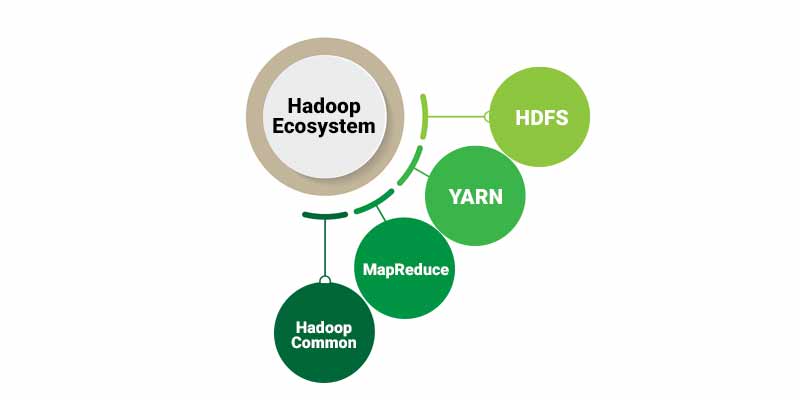Hadoop Training in Bangalore

Learn Hadoop development, administration and architecture from Hadoop Training in Bangalore, offered by FITA Academy, in order to master the skill of consuming, storing and analysing huge volumes of data. We provide a comprehensive learning environment for gaining professional skills in the Hadoop ecosystem comprising HDFS, MapReduce, YARN, Pig, Hive and others to elevate your job profile in this digital world. Join FITA Academy’s Big Data Training in Bangalore to learn from experiences through the hands-on sessions and extensive range of resources at your access to build a strong IT career.
(6733 Ratings)

Course Highlights
- The Big Data Hadoop Training in Bangalore provided by FITA Academy is designed and guided by professional trainers with 8+ years of relevant expertise.
- To promote interaction and provide you with the most personalized learning experience possible, we offer our courses in small groups.
- FITA Academy provides fast-track shift batches in addition to regular shifts on weekdays and weekends for the benefit of students and working professionals.
- FITA Academy has formed placement tie-ups with more than 1500 small to large-scale companies to guarantee assistance for our students.
- Students are given regular assignments to support the growth of their skills. At the end of each chapter, assessments are also offered to help students assess their progress.
- The training programmes at FITA Academy are tailored to fit your preferred style of learning. Online classes with live instructors, as well as offline classes, are available at all our branches.
Quick Enquiry
Course Description
The Big Data Training in Bangalore starts from the beginning to build a solid foundation in the subject. It provides a thorough introduction to the MapReduce and Apache Hadoop technologies. The approaches for data compression, flow design, and types of data generation are all covered in this subject. Using a Java programme with input and output formats, MapReduce is taught.
The course continues with sessions on Hbase, Pig, and Apache Hive. It clarifies the ideas of the CAP theorem, shell script execution, and DML/DDL commands. Apache Sqoop, Flume, and Zookeeper are part of the last module. The numerous sqoop concepts, flume features, the Hue architectural flow, Zookeeper ideas, Hadoop admin commands, balancer ideas, and various other topics are introduced to the students
Get trained by Industry Experts via
Instructor-led Live Online or Classroom Training
with 100% Placement Support

Hadoop Certification in Bangalore
The FITA Academy-approved Hadoop Certification Course in Bangalore offers students unique certifications. The certification takes into account the ability to efficiently analyse massive datasets using the Hadoop framework and environment. A candidate will have an advantage over the competition in practically all interviews by pursuing such a highly knowledgeable credential at one of the top training facilities, like FITA Academy.
The high-quality instruction and practical framework knowledge that FITA Academy promises will keep the bar rising. Our certification is proof of the candidate’s dedication to expanding their knowledge base and becoming an expert in their field. FITA Academy ensures the Hadoop certification by providing the best learning opportunities for skills, knowledge, and practical abilities to maintain industrial competitiveness.


Industory Expert Trainers


LIVE Project


1,500+ Hiring Partners


Affordable Fees
Hadoop Job Opportunities
The size of the global Hadoop and Big Data market has grown by 75% over the last five years, and this growth is anticipated to continue, according to a recent Statista study. This enormous growth creates a lot of job chances in the IT sector.
Hadoop and Big Data specialists are in high demand from small to large-scale companies. The many employment positions available to those with the certificate of Big Data Training in Bangalore at FITA Academy include Hadoop Developer, Hadoop Administrator, Hadoop Architect, Hadoop Tester, Big Data Engineer, Big Data Architect, and Machine Learning Engineer.
According to information gathered from Glassdoor and Ambition Box, the typical Big Data Engineer Salary for younger workers is between 3.0 and 4.5 LPA. You can improve the package with the expertise you’ve acquired through your work.

Our Alumni Works At

Hadoop Training in Bangalore Frequently Asked Questions
Students at FITA Academy will gain hands-on experience using the Hadoop framework and ecosystems while working on a current industrial project under the guidance of industry professionals. Our trainers, who have a combined 8+ years of experience in this industry, deliver top-notch training. Above all, the legitimacy of our Hadoop certification is unwavering.
To join the Big Data Training in Bangalore, visit one of the FITA Academy branches or request a callback from our admission staff.
Students and working professionals can choose their preferred teaching methodology at FITA Academy. By taking live instructor-led online classes from the convenience of their homes, we give people a choice to advance their education and strengthen their professional profiles. Additionally, our branches regularly provide in-person offline sessions from certified trainers.
The FITA Academy has established more than 1500 placement partnerships with small to large-scale IT companies. Through this, we provide guaranteed placement support in order to secure the future of our students who have successfully finished their courses.
In order to offer excellent IT training, we established FITA Academy in 2012. Our training has already been trusted by more than 50,000 students, many of whom are now employed by renowned IT companies. Through our training programmes, we hope to provide 1 million students with the skills they need to pursue the IT careers of their choice.
Get trained by Industry Experts via
Instructor-led Live Online or Classroom Training
with 100% Placement Support

Additional Information of Hadoop Training in Bangalore
The fastest-growing sectors of the IT industry today are big data and Hadoop. So start enrolling yourself in the Big Data Hadoop Training in Bangalore immediately to improve your employment prospects.
What is Hadoop?
Huge volumes of data can be stored using open-source Hadoop technology, which allows software clusters to run applications. We can perform an infinite number of processes or tasks because of the vast data storage, strong processing, and computational skills. The main objective of Hadoop is to promote the growth of big data technologies that support advanced analytics, such as predictive analytics, machine learning (ML), and data mining.
Hadoop Ecosystem
The Hadoop ecosystem is a platform or framework that assists in resolving large data problems. It has a number of components and services, such as those for ingesting, storing, analysing, and preserving large amounts of data. The four fundamental components of the framework are supported by the majority of the services in the Hadoop ecosystem, which are as follows.
- HDFS
- YARN
- MapReduce
- Hadoop Common
The Hadoop ecosystem consists of Apache Open Source projects as well as many different commercial tools and solutions. Some of the well-known open-source examples include Spark, Hive, Pig, Sqoop, and Oozie. The core components are explained below for your reference.
HDFS (Hadoop Distributed File System)
The core of the Hadoop ecosystem is the Distributed File System or HDFS. With the use of this technology, you may distribute the storage of massive amounts of data among a number of machines. This suggests that your system will view all of your hard drives as a single massive cluster. Additionally, it maintains redundant data copies. Even if one of your PCs suddenly caught on fire or experienced some technical difficulties, you wouldn’t even know anything had happened. By creating a backup from a duplicate of the data, it has automatically saved, HDFS may therefore recover from that.
YARN (Yet Another Resource Negotiator)
The Hadoop ecosystem eventually proceeds onto the Yet Another Resource Negotiator. It serves as the hub for Hadoop’s data processing. YARN is the name of the system that manages the resources on your computing cluster. It is the one who decides who gets to do the job and when, as well as which nodes are available for further work and which ones are not. As a result, it keeps your cluster beating like Hadoop’s heart.
MapReduce
An exciting application that can be built on top of YARN is MapReduce. MapReduce, the second component of the Hadoop ecosystem, is a programming model enabling data processing across an entire cluster. Mappers and Reducers, which are numerous scripts or functions you might create when developing a MapReduce programme, make up the majority of it. While Mappers can effectively modify your data in parallel throughout your computing cluster, Reducers are responsible for collecting your data. Although MapReduce appears to be a simple concept, it is highly adaptable. Complex problems can be resolved by combining Mappers and Reducers.
Hadoop Common
Hadoop Common or Hadoop Core refers to the collection of common software and libraries that support other modules of Hadoop. It is a vital part or module of the Apache Hadoop Framework, along with Hadoop YARN, HDFS (Hadoop Distributed File System) and Hadoop MapReduce. Join the Hadoop Training in Bangalore to thoroughly understand numerous Hadoop components in addition to the main Hadoop core components. Consider joining the Big Data Courses in Bangalore to learn more about other Hadoop components.
Key Features of Hadoop
Open Source
Since Hadoop is open-source, everyone has access to its source code. We can modify the source code to suit the demands of our firm. Even proprietary versions of Hadoop are available from businesses like Cloudera and Hortonworks.
Low Latency Rate
Low latency refers to processing data with little to no delay, whereas throughput refers to the amount of work completed in the given amount of time. Since Hadoop is built on the concepts of distributed storage and parallel processing, the processing is done concurrently on each block of data and independently of one another. Code is also sent to the cluster’s data rather than the data itself. These two make it possible to have both high throughput and low latency.
Cost Effective
Hadoop is open-source and leverages inexpensive commodity technology, offering a cost-effective alternative to traditional relational databases that require expensive gear and high-end CPUs to manage Big Data. Businesses have started deleting raw data, which might not be ideal for their operations because maintaining a huge amount of data in standard relational databases is not cost-effective. Hadoop provides us with two significant cost-saving benefits: first, it is open-source, which means using it is free; and second, it makes use of affordable commodity hardware.
Compatibility
Hadoop’s processing engine is known as Map Reduce, while its storage layer is referred to as HDFS. However, it is not a requirement that Map Reduce be used as the default Processing Engine. New processing frameworks like Apache Flink and Apache Spark leverage uses HDFS as a storage system. Depending on our requirements, we can change Apache Tez or Apache Spark as the execution engine in Hive. Apache HBase uses a NoSQL columnar database with HDFS as its storage layer.
Data Locality
The core principle of Hadoop is to move the code, not the data. Data locality in Hadoop refers to the process by which duties are shifted to the data to be handled rather than the code. As we deal with data at the peta byte level, transporting data across networks becomes difficult and expensive, therefore, data localization ensures that data movement in the cluster is kept to a minimum.
Performance
In older systems like RDBMS, data is handled in a sequential manner. On the other hand, Hadoop begins processing every block at once, allowing for parallel processing. Due to parallel processing techniques, Hadoop performs substantially better than legacy systems like RDBMS.
Scalability
Hadoop is a highly scalable system that makes use of a machine cluster. We may increase the number of nodes in our cluster as necessary without experiencing any downtime. Vertical scaling involves increasing hardware by doubling the hard drive and RAM, whereas horizontal scaling involves adding more machines to the cluster in this manner.
Speed
The Hadoop framework uses the Hadoop Distributed File System to handle its storage. The Distributed File System divides a large file into smaller file blocks and distributes them among the nodes of the Hadoop cluster (DFS). Hadoop performs better and is quicker than conventional database management systems because so many file blocks are handled in parallel. When dealing with enormous amounts of unstructured data, speed is essential, and Hadoop makes it easier to retrieve TBs of data in a short span.
The Big Data Courses in Bangalore offered by FITA Academy will help you learn more features and components of Hadoop as well as Big Data. This will add to your advantage for unlocking numerous job opportunities worldwide. Build a strong IT career by choosing FITA Academy!
FITA Academy Branches

Chennai

Bangalore

Coimbatore




